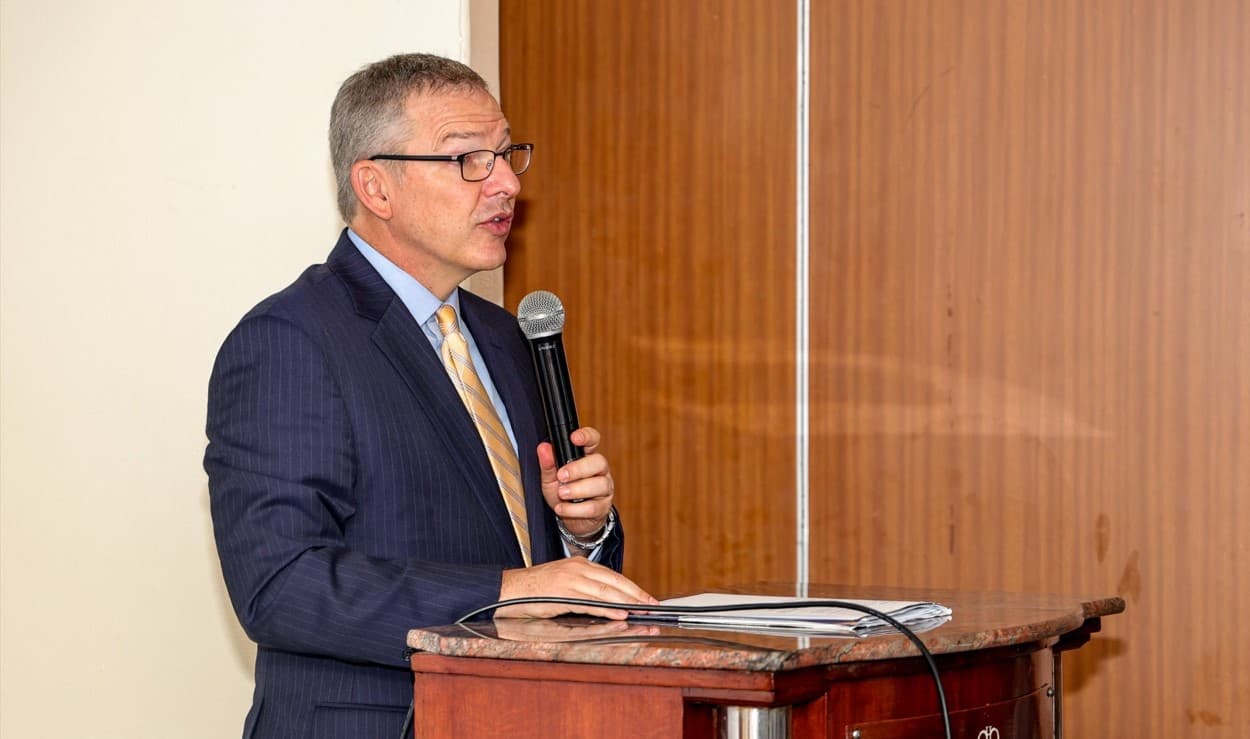We're loading the full news article for you. This includes the article content, images, author information, and related articles.
A high-stakes hearing in Washington D.C. over alleged government pressure on a broadcaster offers a critical lens through which to examine the increasing use of regulatory power to control media narratives in Kenya.

WASHINGTON D.C. – The chairman of the United States Federal Communications Commission (FCC), Brendan Carr, is scheduled to testify before the Senate Commerce Committee on Wednesday, December 17, 2025, EAT, to address accusations of improperly pressuring broadcasters into censoring a prominent television host. The hearing was announced by Senator Ted Cruz following bipartisan criticism of Carr's actions, which led to the temporary suspension of the late-night program "Jimmy Kimmel Live!" on the ABC network.
The controversy ignited in September 2025 after Carr publicly stated that ABC, its parent company Disney, and affiliated broadcast stations could face punitive regulatory action if host Jimmy Kimmel was not reprimanded for comments made during his show. Kimmel's monologue concerned the public reaction to the assassination of conservative influencer Charlie Kirk. In an interview on a conservative podcast, Carr warned, "We can do this the easy way or the hard way... take action, frankly, on Kimmel, or there's going to be additional work for the FCC ahead." This was widely interpreted by legal experts and politicians as a threat to revoke the stations' broadcast licenses, a form of government coercion known as "jawboning" that raises significant First Amendment free speech concerns.
Following Carr's remarks, ABC suspended Kimmel's show indefinitely, a decision that sparked immediate backlash. Democratic lawmakers, including Senate Majority Leader Chuck Schumer, accused Carr of "bullying" companies to silence speech critical of the Trump administration and called for his resignation. House Democratic leaders issued a joint statement accusing Carr of a "corrupt abuse of power." Carr has defended his actions, denying he played a direct role in the suspension and arguing that he was upholding the FCC's mandate to ensure broadcasters operate in the “public interest.”
While the events in Washington may seem distant, the core issue of a state regulator using its authority to influence media content resonates deeply within Kenya's current media landscape. The nation's regulatory bodies, particularly the Communications Authority of Kenya (CA), have faced similar accusations of overreach and stifling press freedom. This U.S. case serves as a powerful international example of the ongoing struggle to balance legitimate regulation with the fundamental right to freedom of expression, a right enshrined in Article 33 of the Kenyan Constitution.
In June 2025, the CA ordered all Kenyan television and radio stations to cease live coverage of nationwide anti-tax protests, warning of unspecified sanctions for non-compliance. The directive was widely condemned by media houses and civil society as unconstitutional and a blatant attempt to control the narrative and suppress dissent. The ban was only rescinded after the Law Society of Kenya (LSK) and Katiba Institute filed petitions at the High Court.
This incident is part of a broader pattern of concern. Proposed legislation, such as the Kenya Information and Communications (Amendment) Bill, dubbed the “Social Media Bill,” seeks to impose stringent controls, including mandatory registration with the CA and ID verification for anyone posting content for public consumption. Critics argue these measures are designed to end online anonymity and create a chilling effect on free speech, disproportionately affecting young content creators, activists, and journalists.
Kenya's media is governed by a co-regulation model involving state bodies like the CA and the Media Council of Kenya (MCK), which is tasked with upholding ethical standards. However, laws such as the Computer Misuse and Cybercrimes Act (2018) have been used to arrest and charge individuals, including bloggers, for publishing information deemed critical of public figures, under the guise of combating "false information" and hate speech. This has led to a climate where journalists and human rights defenders feel increasingly vulnerable to intimidation.
The FCC Chairman's justification of acting in the “public interest” is a vague but powerful tool also available to Kenyan regulators. The debate in the U.S. Senate over whether Carr's actions constituted permissible persuasion or unconstitutional coercion is directly relevant to Kenya. As Kenyan authorities continue to seek greater control over digital and broadcast media, the Kimmel-FCC affair highlights the global danger of regulatory bodies becoming instruments of political pressure rather than independent arbiters. The outcome of Carr's testimony will be watched closely by press freedom advocates worldwide, offering potential precedents for how democratic nations define the boundaries of state influence over the media.
Keep the conversation in one place—threads here stay linked to the story and in the forums.
Sign in to start a discussion
Start a conversation about this story and keep it linked here.
Other hot threads
E-sports and Gaming Community in Kenya
Active 9 months ago
The Role of Technology in Modern Agriculture (AgriTech)
Active 9 months ago
Popular Recreational Activities Across Counties
Active 9 months ago
Investing in Youth Sports Development Programs
Active 9 months ago